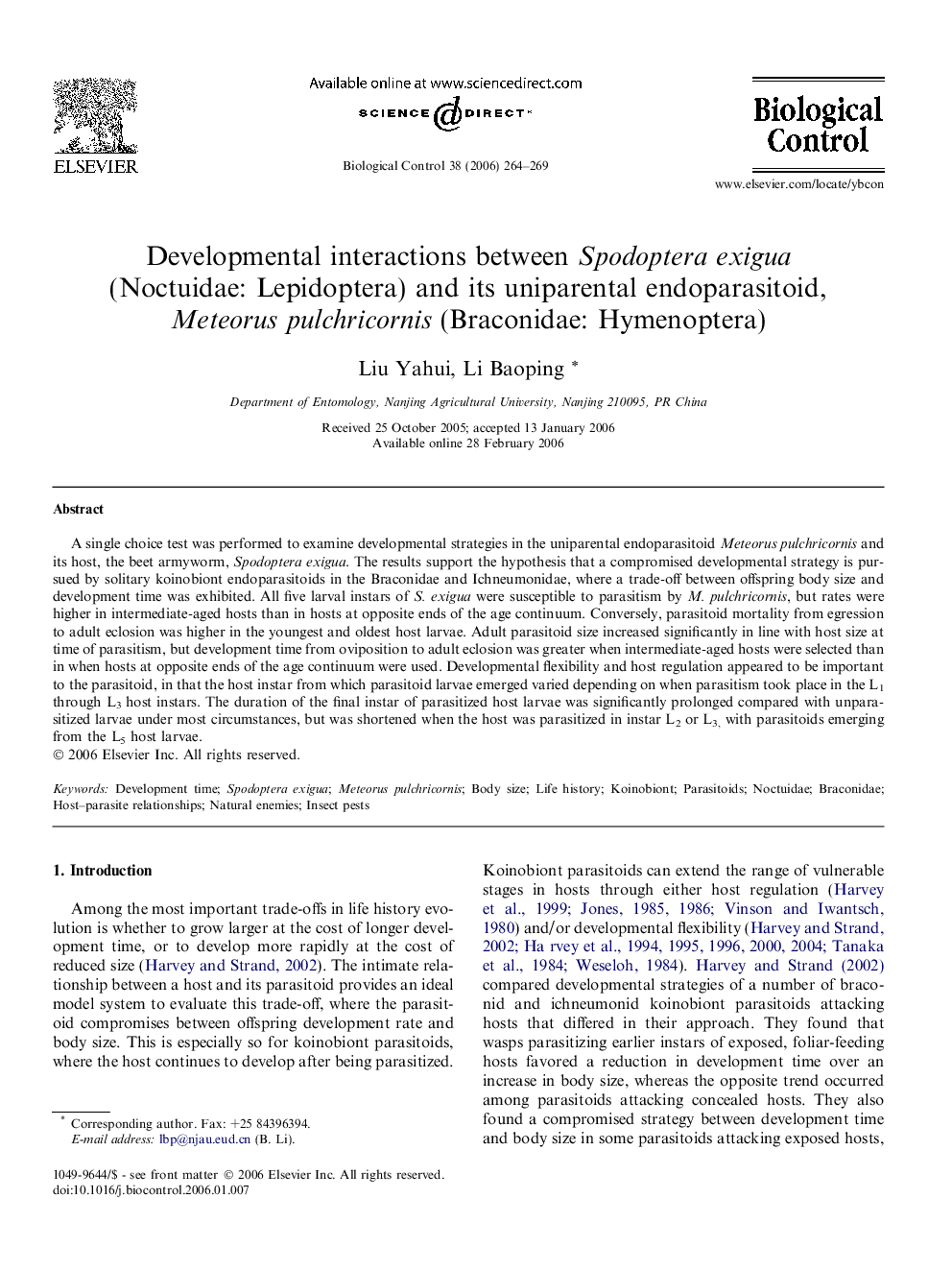| Article ID | Journal | Published Year | Pages | File Type |
|---|---|---|---|---|
| 4505330 | Biological Control | 2006 | 6 Pages |
Abstract
A single choice test was performed to examine developmental strategies in the uniparental endoparasitoid Meteorus pulchricornis and its host, the beet armyworm, Spodoptera exigua. The results support the hypothesis that a compromised developmental strategy is pursued by solitary koinobiont endoparasitoids in the Braconidae and Ichneumonidae, where a trade-off between offspring body size and development time was exhibited. All five larval instars of S. exigua were susceptible to parasitism by M. pulchricornis, but rates were higher in intermediate-aged hosts than in hosts at opposite ends of the age continuum. Conversely, parasitoid mortality from egression to adult eclosion was higher in the youngest and oldest host larvae. Adult parasitoid size increased significantly in line with host size at time of parasitism, but development time from oviposition to adult eclosion was greater when intermediate-aged hosts were selected than in when hosts at opposite ends of the age continuum were used. Developmental flexibility and host regulation appeared to be important to the parasitoid, in that the host instar from which parasitoid larvae emerged varied depending on when parasitism took place in the L1 through L3 host instars. The duration of the final instar of parasitized host larvae was significantly prolonged compared with unparasitized larvae under most circumstances, but was shortened when the host was parasitized in instar L2 or L3, with parasitoids emerging from the L5 host larvae.
Keywords
Related Topics
Life Sciences
Agricultural and Biological Sciences
Agronomy and Crop Science
Authors
Liu Yahui, Li Baoping,
